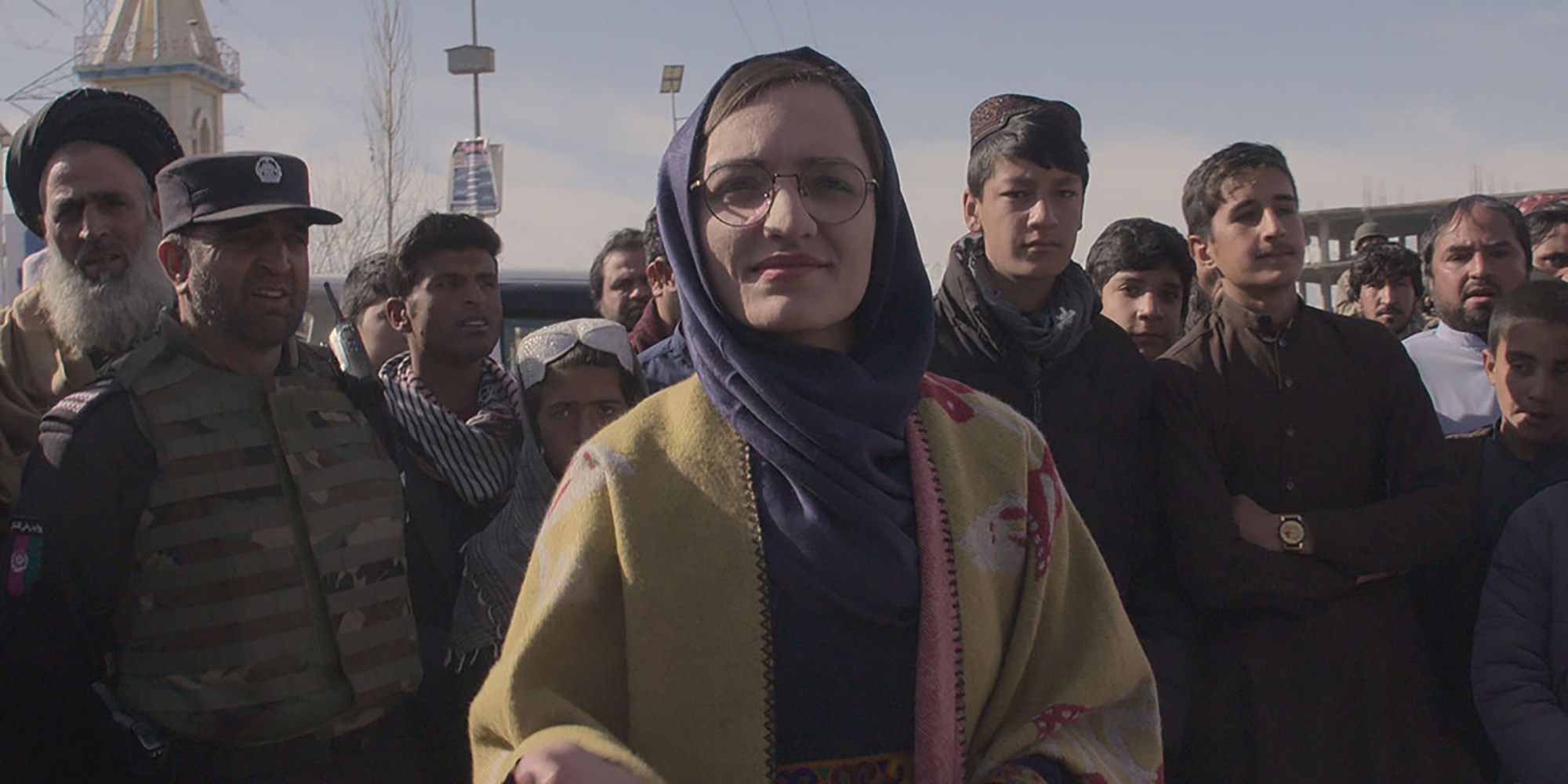
- Festivals
TIFF 2022: Documentary “In Her Hands” Details Afghanistan Mayor’s Fight for Human Rights
The immense fortitude of the female gender was on rich display throughout this year’s Toronto International Film Festival, from well-received narrative features like The Woman King and Women Talking to the gripping documentary In Her Hands, which details two years in the fraught existence of one of the few female mayors in Afghanistan, and by far the youngest.
“This is Zarifa Ghafari’s story, but also the story of so many other women in Afghanistan. It just grabs you by your heart and doesn’t let it go,” said Hillary Clinton, an executive producer on the movie along with daughter Chelsea Clinton, during a special introduction at the film’s packed world premiere on September 9 at the TIFF Bell Lightbox. “You’ll see scenes in this film, and you’ll ask yourself how did they even get that footage, how did those people talk to them, how did they survive making this?”
“I had the great privilege and challenge when I was Secretary of State to travel to Afghanistan numerous times, and I fell in love with the people of that country — particularly the women and girls, who were able to go to school and practice their professions and, as in Zarifa’s case, enter politics and government and make their contributions as the active and involved citizens that they were,” continued Clinton. “But as we all know, tragically, the story [of this film] is one that’s almost unimaginable — to be forced to leave your home, your friends, and members of your extended family, to seek new life elsewhere. This is an important story, but it’s a story that I hope people will think of as not just about Zarifa, or women, or the country of Afghanistan, but of the universal values that it represents.”
Co-directed by Tamana Ayazi and Marcel Mettelsiefen, In Her Hands opens with harrowing footage from the fall of Kabul last August, as panicked parties flee the encroaching Taliban. It then flashes back in time 20 months, to a more hopeful era. Intercutting interviews with curated observational footage, viewers get to bear witness to Ghafari, only 24 at the time of her appointment, as she goes about serving as Mayor of Maidan Shahr, a town of around 35,000, and trying to better the lives of her constituents.
The daughter of a senior military officer, Ghafari talks about the biggest achievement of her life being changing the mind of her father with respect to her higher education — though the film also shows his entrenched strictness in an argument over Ghafari’s impending nuptials with her fiancé Bashir.
One of the film’s more compelling narrative pillars involves Ghafari’s driver and bodyguard, Massoum, an enlightened young man who expresses considerable admiration for his boss, and — even though she toils under threat of death by the Taliban — optimism about the future Ghafari might be able to help shape for their country.
As conditions in Afghanistan worsen, though, and a terrible tragedy befalls Ghafari, she eventually makes the tough decision to move from her rural prefecture to the more fortified capital city of Kabul, in order to take a job in the central government’s Ministry of Defense. The move, though, comes with consequences for Massoum.
Interwoven with Ghafari and Masoum’s interconnected story is a strand focusing on Musafer, a 36-year-old Taliban fighter who gives the filmmakers incredible access to Taliban-controlled portions of the country. These sections highlight how the past and current rulers of Afghanistan savvily consolidate power through a combination of fear and security, manipulating public trust in impoverished rural areas by way of exploiting historic gaps between outside promise and delivery — even as they quite openly boast of not merely social policies that would charitably be described as extremely regressive to most of the civilized world, but vengeful, retributive behavior and even public executions.
Some critics have notably taken aim at the movie’s inclusion of Musafer, seemingly selectively confusing depiction with endorsement. Or perhaps they believe that the Taliban, despite their absolutely repugnant historical record, is a monolithic and immutable evil which shouldn’t invite any attempts to either understand and learn from it or broker some measure of change.
Meanwhile, All the Beauty and the Bloodshed filmmaker Laura Poitras freshly arrived from her latest film’s Gold Lion triumph in Venice, used her platform at a festival press conference to take aim at Clinton’s TIFF appearance, characterizing it as alarming. “Hillary Clinton was actively involved in the wars and occupations in Iraq and Afghanistan,” Poitras said. “She supported the escalation of troops. And I really find it troubling that this is all being forgotten.”
These criticisms, while seemingly sincere, jointly reflect a certain knee-jerk absolutism that has infected the body politic. In rejecting connections to or inclusions in the film that they deem unsavory, some parties demand a level of purity that Ghafari and the people of Afghanistan cannot afford to apply to would-be allies. As In Her Hands amply demonstrates, if repressive and tyrannical ideologies are to be defeated in the 21st century, the battle will not only be hard-fought but also require incredible persuasion, compromise and yes, even incrementalism. In other words: all hands on deck.

